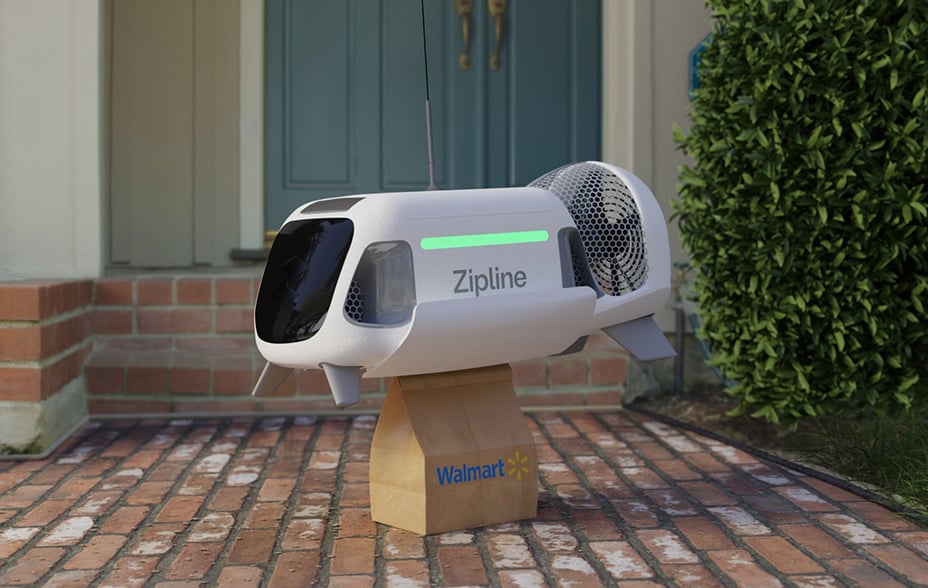
All investments have the potential for profit and loss, your or clients’ capital may be at risk.
At the heart of the American Dream is the idea that anyone can start a business and change the world through ingenuity, hard work and investment. The story of the first powered manned flight is a case in point.
On 7 October 1903, watched by news reporters, an aircraft launched from a houseboat on the Potomac River, south of Washington DC. The US Department of War had backed the historic effort with $1.7m in today’s money after successful tests involving smaller unmanned prototypes. The craft immediately crashed into the water. A repeat attempt weeks later by its inventor, a celebrated physicist, ended in a similar failure.
Instead, it was two bicycle salesmen – Orville and Wilbur Wright – who made history with the Wright Flyer that same year. The plane took to the air four times on 17 December, staying aloft for up to 59 seconds. It had cost the brothers the equivalent of $35,000 – about 50 times less than the government’s spend on the rival scheme. That included constructing a wind tunnel to study airflow and building their own motor after being spurned by manufacturers.
The company the brothers subsequently founded survives within the aeronautical component maker Curtiss-Wright and has links to defence giant Lockheed Martin’s origins.

The Wright brothers’ Flyer made its maiden flight above the sand dunes of Kitty Hawk, North Carolina.
The Wrights are part of a long list of curious, ambitious American pioneers who have created huge value. Some were natives to its shores, others immigrants attracted by its immense advantages. At the end of 2023, 62 of the world’s 100 most valuable listed companies were US-based. (Canada’s Shopify, one of our holdings, brings North America’s tally to 63).
The US is even more dominant in young companies, many of which are private.
The US: innovation nation

Source: Dealroom.co. Data to end January 2024.
The United States remains the best place to find and invest in exceptional growth companies, whether they are public or private. The reasons are manifold and, we believe, will persist long into the future.
It has the best academic research institutions in the world and a strong talent pool supplemented by immigration. It has a broad and deep venture capital system that supercharges startups’ growth by providing funds in addition to technical and managerial advice. It has strong intellectual property protection and a business-friendly environment. Finally, its culture of optimism, ambition and willingness to accept failure is unrivalled.
Standout leaders
Orville and Wilbur Wright succeeded where others had failed because of their innovative research techniques, skill and determination. Such entrepreneurialism is as strong as ever today, and we place significant weight on finding company founders and leaders who exhibit the right blend of characteristics to achieve their long-term missions.
There are direct lineages from some of the original American dreamers to those changing our world today:
- from the Wright Brothers to Keller Rinaudo Cliffton, chief executive and co-founder of Zipline, whose autonomous drones deliver everything from medical supplies to Walmart orders
- from Leroy Grumman’s Grumman Corporation, which made the Apollo Missions’ lunar modules, to Elon Musk’s SpaceX, making the next version for the Artemis missions
- from Robert Noyce, who invented the silicon microchip at Fairchild Semiconductor and co-founded Intel, to Jensen Huang at NVIDIA, whose artificial intelligence ‘superchips’ are driving many of today’s software and scientific advances
- from Wall Street banking titan John Pierpoint Morgan and Visa founder Dee Hock to John and Patrick Collison, co-founders of the digital payments company Stripe
- from venture capitalist Bob Swanson and biochemist Dr Herbert Boyer, co-founders of the ground-breaking biotechnology firm Genentech, to Stéphane Bancel, co-founder and chief executive of the mRNA vaccine maker Moderna
- from telephone inventor Alexander Graham Bell, whose Bell Telephone Company became the foundation of AT&T, to Meta’s Mark Zuckerberg, whose Facebook, Instagram, WhatsApp and Messenger apps connect nearly four billion people

Zipline established its drone service by making blood deliveries in Rwanda and has since teamed up with Walmart to make grocery drop-offs in the US. © Zipline.
The pursuit of the American Dream built the United States. Today, opportunities abound in all kinds of exciting sectors.
For example, Ginkgo Bioworks is pioneering the use of synthetic biology with its platform to code DNA in a manner similar to software programming. Alnylam Pharmaceuticals is tackling debilitating diseases by developing drugs that silence faulty genes. And Roblox is entertaining, connecting and educating millions of people via its online video game platform.
Active investing
Accessing these exceptional companies, however, has not been easy.
Yes, you can buy a cheap S&P 500 index tracker fund to get broad exposure to the US and some of its big names, including Apple and Microsoft. That can play an important role in people’s portfolios. But indices tend to be backwards-looking and won’t give you access to some of the most innovative and disruptive public growth companies. Neither the S&P 500 nor Dow Jones indices include Ginkgo, Alnylam or Roblox at the time of writing. They are in our portfolio, though.
It certainly won’t allow you to invest in private exceptional growth companies like SpaceX, Zipline and Stripe. Nor will it give you access to Solugen and its fossil fuel-free approach to making chemicals, or Epic Games and its video game Fortnite and 3D graphics developers’ tool Unreal Engine. These companies, driven by founders with powerful visions of the future, are staying private for longer than firms did in previous decades. SpaceX is over 20 years old.
Private companies like these have traditionally been unavailable to retail investors. That was one of the main reasons we launched the Baillie Gifford US Growth Trust in 2018.
We seek out the very best of these exceptional growth companies for our portfolio. And being a Trust means we’re free to back them whether they trade on public markets or not. That’s why almost half of the companies we invest in are still private. It’s no surprise then that our portfolio’s overlap with the S&P 500 is extremely low (only about 10 per cent).

SpaceX has made space transport a commercial proposition by launching satellites into orbit and running its own satellite broadband service. © SpaceX.
It means only we can offer you exclusive access to these amazing opportunities solely focused on North America. And our annual 0.69 per cent management charge is significantly below the much higher fees of many private equity funds.
The question for long-term investors, therefore, isn’t: “How can I gain access to the next generation of Wright Brothers, Bell or Noyce?” We’ve solved that problem. Instead, it should be: “Why wouldn’t I want exclusive exposure to some of the greatest innovators of our age and the companies they are building?”
In just four generations, we’ve gone from having an aircraft barely capable of transporting its pilot across 850ft to companies making autonomous drones carrying out 10-mile grocery deliveries and self-landing rockets transporting astronauts to a space station orbiting 250 miles above. By giving flight to bold ideas that can generate huge value over time, the innovative companies the US Growth Trust invests in epitomise the American Dream made real.
Learn more about the Baillie Gifford US Growth Trust, including who to speak to if you have any questions and how to invest.
You can also hear from the Trust’s co-manager Kirsty Gibson about her approach to investing in companies disrupting the physical and digital worlds.
Important information and risk factors
The Baillie Gifford US Growth Trust has a significant investment in private companies. The Trust’s risk could be increased as these assets may be more difficult to sell, so changes in their prices may be greater.
Investment in smaller companies is generally considered higher risk as changes in their share prices may be greater and the shares may be harder to sell. Smaller companies may do less well in periods of unfavourable economic conditions.
The Trust’s exposure to a single market and currency could increase risk. Investments with exposure to overseas securities can be affected by changing stock market conditions and currency exchange rates.
The views expressed should not be considered as advice or a recommendation to buy, sell or hold a particular investment. They reflect opinion and should not be taken as statements of fact nor should any reliance be placed on them when making investment decisions.
This communication was produced and approved in February 2024 and has not been updated subsequently. It represents views held at the time and may not reflect current thinking.
All investment strategies have the potential for profit and loss, your or your clients’ capital may be at risk. Past performance is not a guide to future returns.
This communication contains information on investments which does not constitute independent research. Accordingly, it is not subject to the protections afforded to independent research, but is classified as advertising under Art 68 of the Financial Services Act (‘FinSA’) and Baillie Gifford and its staff may have dealt in the investments concerned.
All information is sourced from Baillie Gifford & Co and is current unless otherwise stated.
Baillie Gifford & Co Limited is wholly owned by Baillie Gifford & Co. Both companies are authorised and regulated by the Financial Conduct Authority and are based at: Calton Square, 1 Greenside Row, Edinburgh EH1 3AN.
The investment trusts managed by Baillie Gifford & Co Limited are listed on the London Stock Exchange and are not authorised or regulated by the Financial Conduct Authority.
A Key Information Document is available by visiting bailliegifford.com
Ref: 90646 10044684





